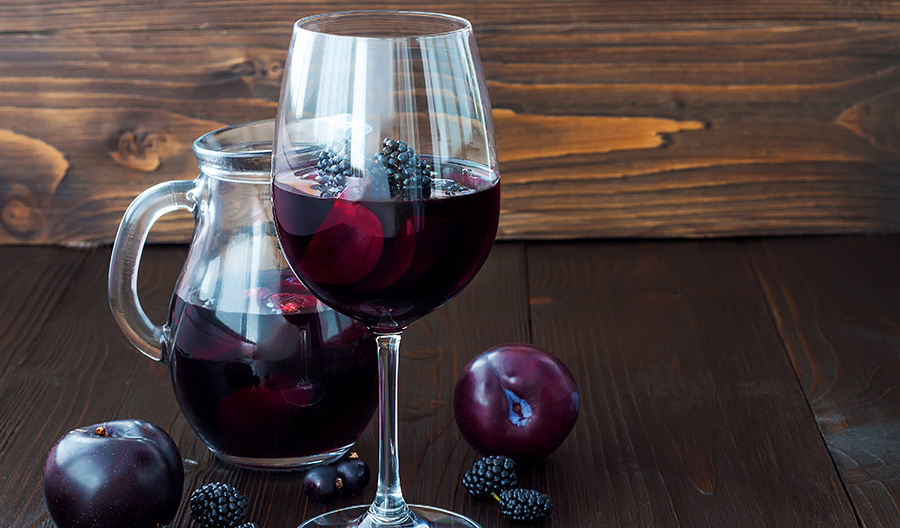Step into the lush world of fruit liqueurs, where vibrant flavors, centuries-old traditions, and modern mixology converge. Fruit liqueurs are a diverse category of spirits, with a wide range of types based on the fruit they are derived from. One of the most popular types is berry liqueurs. These are made from various berries such as strawberries, raspberries, blackberries, and blueberries. They are often sweet and have a strong fruit flavor. Fruit liqueurs typically contain a high sugar content, often ranging from 100 to 400 grams per liter. They are made by infusing fruit in alcohol, typically a neutral spirit, and then adding sugar. The alcohol content in fruit liqueurs can vary widely, from as low as 15% to as high as 55%.
Another common type of fruit liqueur is citrus liqueur. These are made from citrus fruits like lemons, oranges, and grapefruits. They are typically tart and refreshing and are often used in cocktails for their bright, zesty flavors. Stone fruit liqueurs are another type, made from fruits like cherries, peaches, plums, and apricots. These liqueurs tend to have a sweet, rich flavor and are often enjoyed on their own or used in dessert cocktails.
Tropical fruit liqueurs, made from fruits like pineapple, coconut, and mango, are also quite popular. These liqueurs are often sweet and fruity and can bring a taste of the tropics to any cocktail. There are also apple and pear liqueurs. These are made from apples or pears and can range from sweet to tart. They are often used in fall and winter cocktails for their warm, comforting flavors.

What are the Most Popular Fruit Liqueurs Worldwide?
One of the most renowned fruit liqueur flavors worldwide is orange liqueur. Originating from France, the premium version of this liqueur is made from a blend of Cognac brandy, distilled essence of bitter orange, and sugar. It is often used in cocktails and desserts due to its unique, rich citrus flavor.
Limoncello is another popular fruit liqueur, hailing from Italy. It is made by steeping lemon zest in high-proof alcohol until the oil is released, then mixing the resulting yellow liquid with a simple sugar syrup. Its sweet, tart, and refreshing flavor makes it a favorite after-dinner digestif.
Raspberry liqueur is produced from raspberries and other berries and spices. The result is a rich and sweet liqueur with a complex berry flavor.
We have herbal liqueurs made from different fruits, roots and herbs. In addition to a variety of other brands, the most renowned brand from is from Germany. While not a fruit liqueur in the traditional sense, the fruit components contribute significantly to its unique taste.
Triple sec made from sweet and bitter orange peels. It's a staple in many classic cocktails, including the Margarita and Cosmopolitan, due to its crisp, clean, and tangy flavor. Then there's bright green, sweet melon-flavored liqueur. It's made from different types of melons, and its vibrant color and sweet, fruity flavor make it a popular choice for tropical-themed cocktails.
How do Different Fruit Liqueurs Impact Taste?
Fruit liqueurs offer a wide range of taste experiences due to the variety of fruits used and the different methods of production. Each fruit imparts its unique flavor profile to the liqueur, creating a spectrum of sweet, tart, tangy, or even bitter tastes.
The sweetness of a fruit liqueur largely depends on the fruit used. For instance, liqueurs made from berries or tropical fruits like mangoes and pineapples tend to be sweeter, while those made from citrus fruits like lemons or grapefruits have a more tart or sour taste. The sweetness can also be influenced by the amount of sugar added during production.
On the other hand, the tartness or acidity of a fruit liqueur is largely determined by the fruit's natural acidity. Liqueurs made from fruits like cherries, plums, or apricots can have a more acidic taste, while those made from pears, peaches, or apples might be less acidic. Another factor that impacts the taste of fruit liqueurs is the method of production. Some liqueurs are made by infusing fruit in alcohol, while others are made by distilling the fruit. Infused liqueurs tend to have a more intense and pure fruit flavor, while distilled liqueurs can have a more complex flavor profile due to the presence of other compounds from the fruit.
Additionally, the aging process can also impact the taste of fruit liqueurs. Aging can mellow out the flavors and create a more harmonious blend of tastes. For instance, a freshly made raspberry liqueur might have a sharp, intense raspberry flavor, but after aging, the flavor might become more rounded and balanced.
Lastly, the type of alcohol used in the production of the liqueur can also influence the taste. For example, a fruit liqueur made with a neutral spirit like vodka will primarily showcase the flavor of the fruit, while a liqueur made with a flavored spirit like brandy might have additional flavor notes from the spirit itself.

